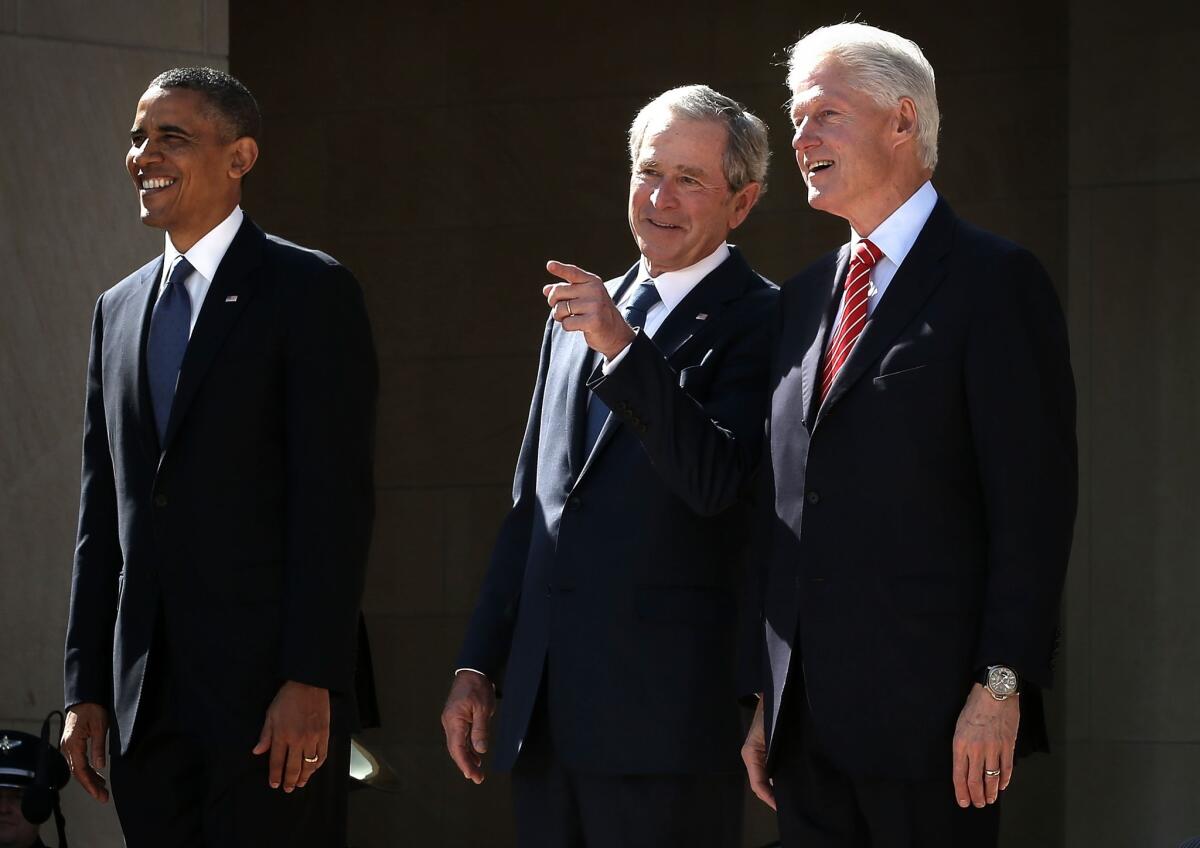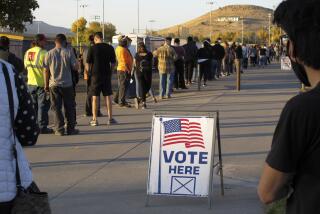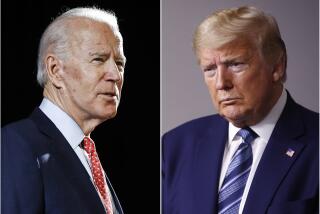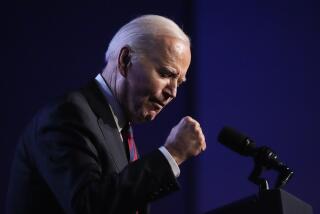Partisanship’s anniversary: 2000 race ushered in era of animosity

Thirteen years ago today, after 36 days of nasty skirmishing over Florida’s contested presidential vote, George W. Bush formally won the 2000 election. The day before, the U.S. Supreme Court had cleared the way for him to become the 43rd president by halting the disputed count in the Sunshine State.
The court acted late on the night of Dec. 12; within hours, Democratic nominee Al Gore had conceded and Bush claimed the presidency. At the time, there might have been hope that exhaustion alone would stem the animosity that had overtaken the nation’s political spheres, but instead the court’s action ushered in an era in which — with a small exception this week — partisan dysfunction has been the rule.
Not that either Bush or his successor, President Obama, intended that; both men took pains as they claimed the presidency to assert that unity was the order of the day.
“I am optimistic that we can change the tone in Washington, D.C.,” Bush said on Dec. 13, 2000, shortly after Gore conceded. “I believe things happen for a reason, and I hope the long wait of the last five weeks will heighten a desire to move beyond the bitterness and partisanship of the recent past.”
PHOTOS: 2013’s memorable political moments
Obama would use strikingly similar words eight years later, on election night 2008, before a raucous crowd in Chicago’s Grant Park.
“In this country, we rise or fall as one nation, as one people,” he said. “Let’s resist the temptation to fall back on the same partisanship and pettiness and immaturity that has poisoned our politics for so long.”
Wrong again.
This week, there was at least a glimmer of a small cease-fire in the bipartisan war. Rep. Paul Ryan, a Republican from Wisconsin, and Sen. Patty Murray, a Democrat from Washington, drew up a budget plan meant to push aside the budget brinkmanship that has marked life in the capital for years. It easily passed the Republican-led House, conservative groups’ rage against it notwithstanding, and will come before the Democrat-led Senate early next week. There, liberals are angry, suggesting that a measure billed as a compromise might actually be one.
As each conflict comes to a head, debates rage over whether the partisan rancor that defines modern Washington is a new development or one that is always there, if occasionally masked by unity driven by events such as the Sept. 11 attacks. A Pew Research study last year provided convincing evidence that partisan polarization on the current scale is largely a new thing, exploding during the Bush and Obama presidencies.
The pollsters have measured dozens of “political values” over the years, trying to glean the breadth of separation between the nation’s two major political parties. They found that the gap between the views of Democrats and Republicans had nearly doubled from 1987 to 2012.
“Nearly all of the increases have occurred during the presidencies of George W. Bush and Barack Obama,” the pollsters wrote. “During this period, both parties’ bases have often been critical of their parties for not standing up for their traditional positions. Currently, 71% of Republicans and 58% of Democrats say their parties have not done a good job in this regard.”
Ironically, the presidential balloting has not reflected that growing partisan gap — then again, there was not much room to expand.
In 2000, only 11% of Democrats voted for Bush and only 8% of Republicans voted for Gore, exit polls found. In 2012, only 6% of Republicans voted for Obama, and only 7% of Democrats voted for Republican Mitt Romney.
Now, however, some Republicans are seeking to make the budget deal a factor in the 2016 race, in part to punish Ryan for his role in the compromise. Florida Sen. Marco Rubio, a potential presidential candidate, issued a statement calling the deal a continuation of the “irresponsible” budget maneuvers that have marked Washington.
Ryan, for his part, was brushing off the criticism of him and of the notion of a pause in the perennial warfare.
PHOTOS: The year in national news
“If I have to stop myself from doing what I think is right to become president, then I don’t want to be president,” the 2012 vice presidential nominee told ABC News.
The deal, he said, was the first time since 1986 that a divided Congress had come to a budget agreement.
“I wouldn’t say it’s big in numbers. It’s big in symbolism,” Ryan said.
Cathleen.Decker@latimes.comTwitter: @cathleendecker
More to Read
Start your day right
Sign up for Essential California for news, features and recommendations from the L.A. Times and beyond in your inbox six days a week.
You may occasionally receive promotional content from the Los Angeles Times.







